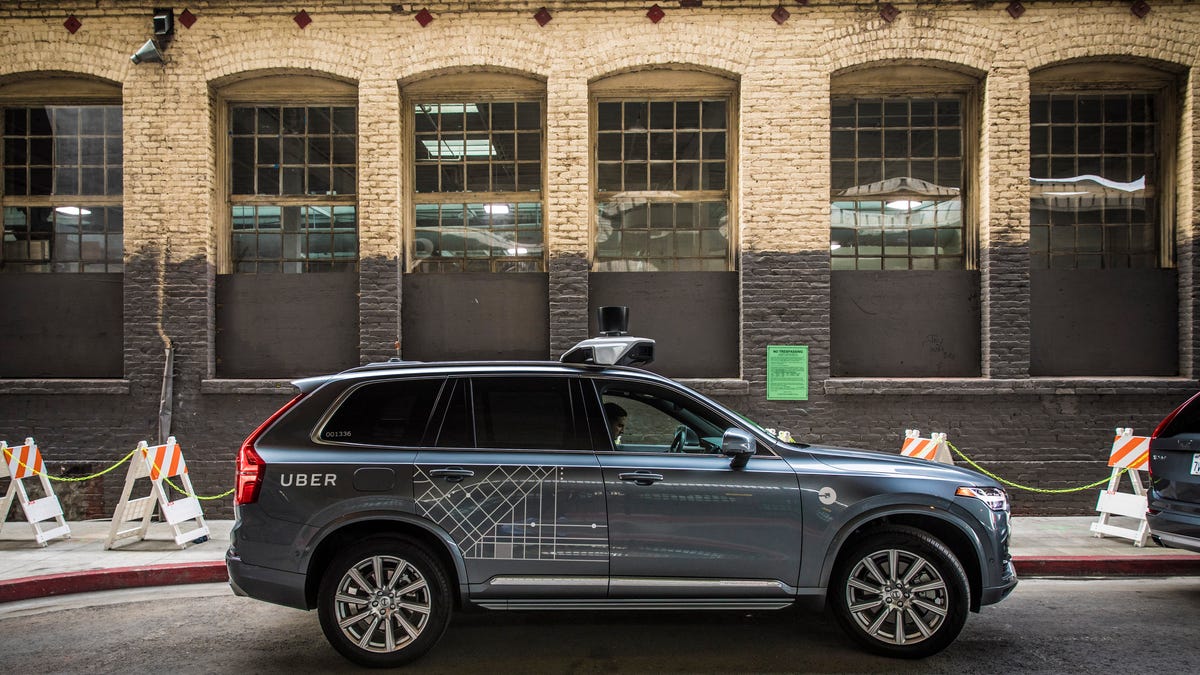'Fully driverless' cars could hit California roads by April
New DMV regulations mean companies can road-test autonomous cars that don't have a backup driver behind the wheel.

Many tech companies, including Uber, are eager to advance autonomous vehicle testing on public streets.
California drivers may soon find themselves sharing the road with cars that don't have a driver behind the wheel.
Starting as soon as April, tech companies and vehicle manufacturers will be allowed to test driverless autonomous cars on California streets under new regulations announced Monday by the state's Department of Motor Vehicle. Before Monday's rules change, a driver was required to be in autonomous vehicles during testing.
"This is a major step forward for autonomous technology in California," DMV Director Jean Shiomoto said in a statement. "Safety is our top concern and we are ready to begin working with manufacturers that are prepared to test fully driverless vehicles in California."
The idea of self-driving cars has captured the imagination and investment dollars of the automobile and tech industries alike.
Google started working on self-driving cars in 2009 and has now test-driven its vehicles for more than 3 million miles. Google rival Uber launched its self-driving project in 2015 and has since racked up more than 1 million autonomous miles on city streets in Pennsylvania, California and Arizona.
Automakers from Toyota to Ford to Volvo all have projects under way. And besides Google and Uber, other Silicon Valley giants, like Apple, Intel and Tesla Motors, are betting on the tech.
Under the new regulations, which take effect April 2, car makers will have to establish a communications link between the vehicle and the remote operator. The vehicle will also have to be able to communicate with law enforcement officials.
Cars will also be required to detect and defend themselves from cyberattacks. They will also need to be able to transmit vehicle owner and operator information in the event of a crash.
Companies wishing to test autonomous cars must obtain a permit from the DMV. The new regulations don't cover the testing of autonomous trucks and other commercial vehicles.
About 50 companies have already obtained permits to test autonomous vehicles on California roads with a driver present in the driver seat. The state will continue to offer permits for driver-in-vehicle testing.
Security: Stay up-to-date on the latest in breaches, hacks, fixes and all those cybersecurity issues that keep you up at night.
Blockchain Decoded: CNET looks at the tech powering bitcoin -- and soon, too, a myriad services that will change your life.

